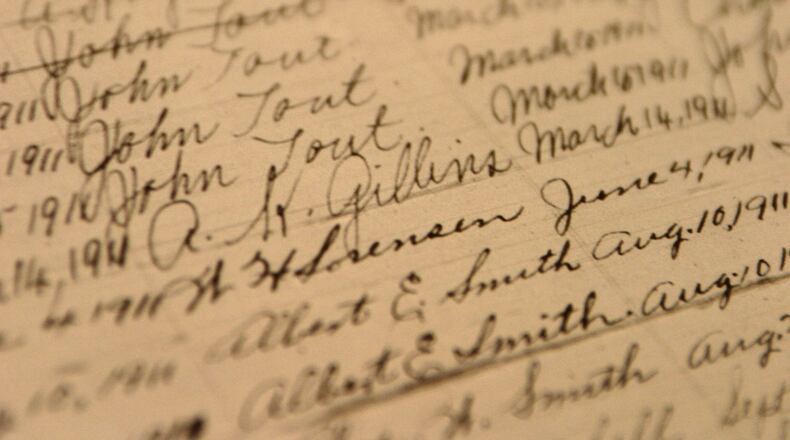Many of us wonder if our genealogy work is in vain, especially since interest in the field seems to be dwindling. We should remember that while laymen may not find a relevant use for genealogy in general, they might be interested in the story of their families during a specified period of time, especially if the story is written in a captivating way. "Bringing Your Ancestors to Life" by Cameron Davis, in the January/February issue of "Your Genealogy Today," hit home for me.
After a family funeral last December, several cousins approached me wanting to know more about their grandfather. He died before they were born. In the article mentioned above, the author says in order to catch your readers’ attention, start with a compelling item. You want to write separate stories for different sides of your family. So with my family tale, I plan to start with the riverboat arrival in Columbus of my great-grandfather in 1886. The date of arrival, the ship and the list of passengers were in the newspaper and confirmed the tale I had heard many times: “Papa arrived on or around Valentine’s Day.” And, just as the story was told to me, he “met their Mama who lived near the river.”
The author says you should consider a few points when storytelling. First, you don’t have to tell all of the story in chronological order. Also add a coda at the end to help sort out people, their births and their deaths. Tell something about each person that humanizes people so they are not just a statistic. Write like you would tell the story to a friend, and try to capture the magic of what you learned. Perhaps dictate it first, then type it up. It’s worth a try.
RELATED: Free sources abound on the Internet
Public library sites for research material
Always go to the website of a county or city public library to see if they have any special collections or other materials to use when visiting the central library. To make things a bit easier, see what data is accessible online. On the Charlotte-Mecklenburg library's website, along with a wealth of other information about the area, I found they have a database listing divorces, adding facts I didn't ever expect to find. It's also not easy to locate again. If you struggle to find information again, visit cmstory.org/divorces for Mecklenburg County divorce records. They have posted a list of their local family files online, giving you an idea of what's available while researching there. I know from previous visits that they have a large collection of family history books.
Where to find archives
The U.S. government's website for the National Archives is archives.gov. It's a resource that's worth checking to see what digitized records are available, or could be in the future. A shortcut to go directly to the archival databases is this website: aad.archives.gov.
OTHER NEWS: The History of April Fools’ Day
About the Author
Keep Reading
The Latest
Featured



